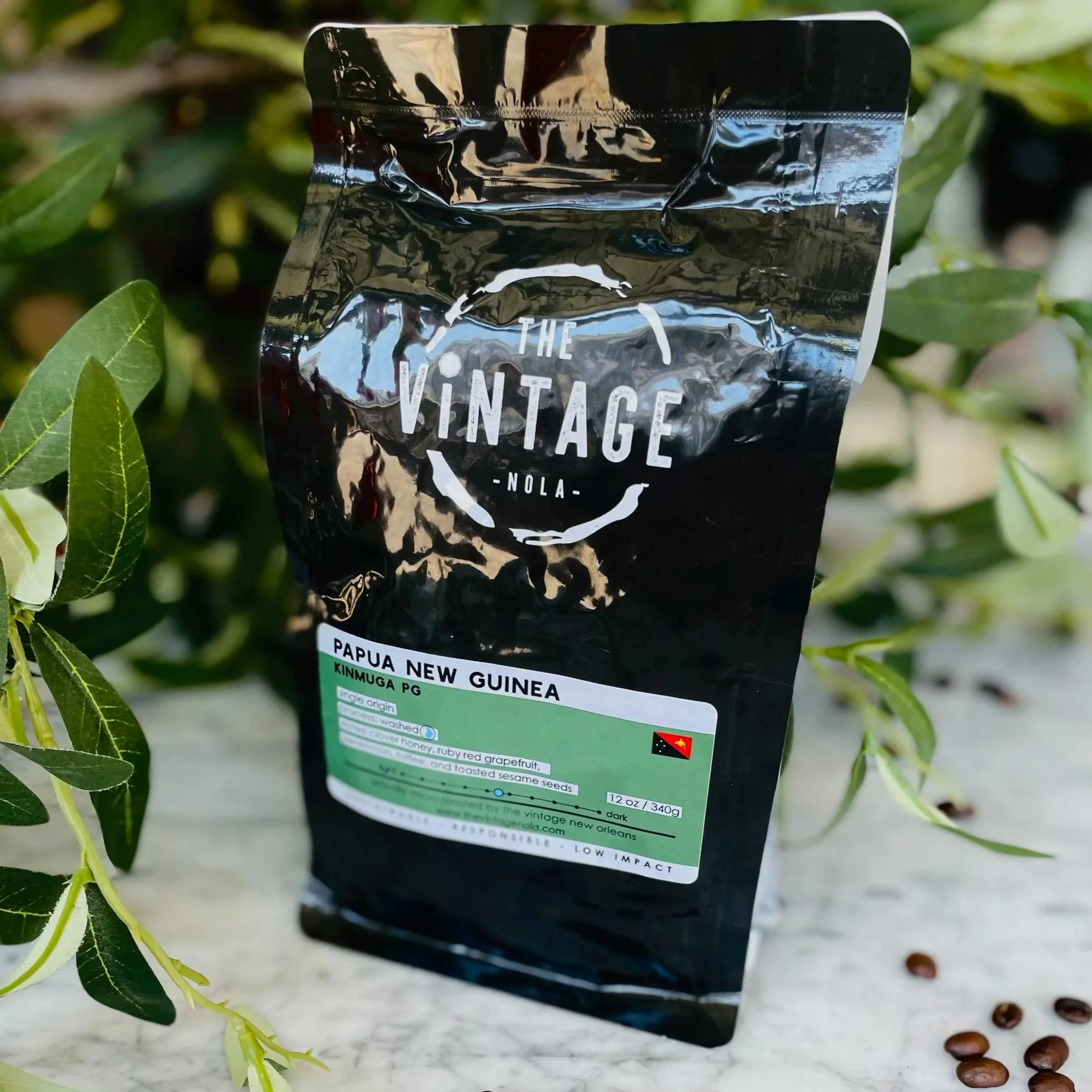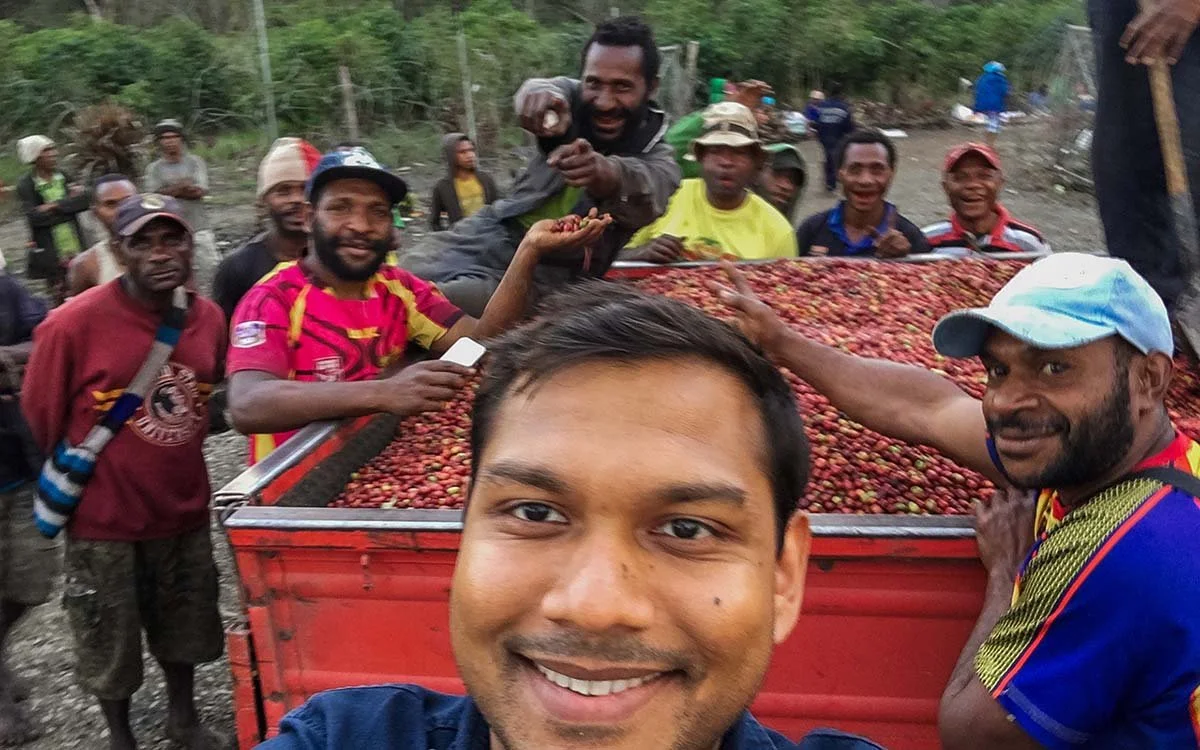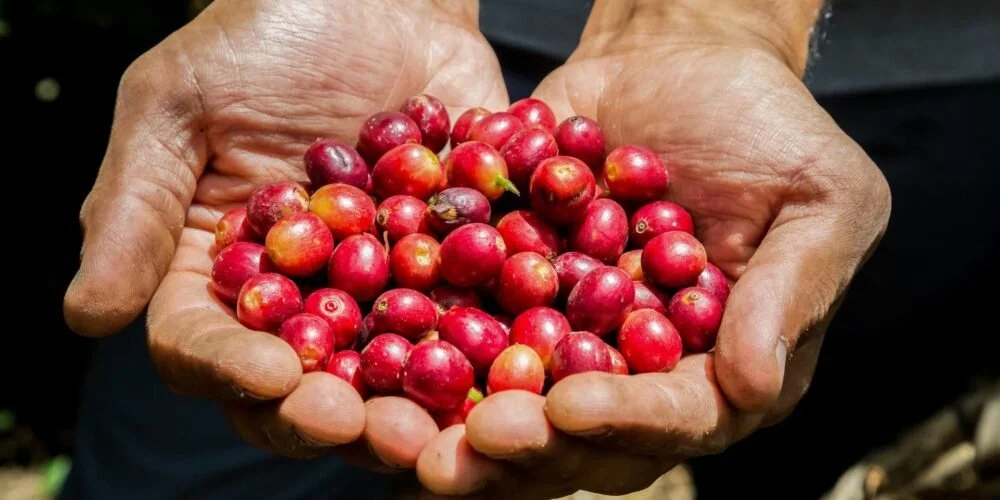The Vintage Single Origin: Papua New Guinea Kinmuga PB



The Vintage Single Origin: Papua New Guinea Kinmuga PB
Hailing from the Western Highlands of Papua New Guinea, Kinmuga Peaberry (PB) redefines smooth, vibrant, and distinctively complex. Experience the celebrated tradition of PNG highland coffee in a unique, concentrated form. The Kinmuga Peaberry offers a beautifully clean cup that balances lively fruit tones with a comforting depth. Bright citrus and sweet red berry up front, rounding out into gentle milk chocolate with a hint of spice. Lively but perfectly balanced, providing a refreshing lift without overpowering the sweetness. The Finish: Remarkably silky and lingering. Roast Level: Medium
What is a Peaberry? Normally, a coffee cherry contains two seeds (beans). A Peaberry is a natural mutation where only one rounded seed develops. These small, dense beans are prized by roasters because they roast evenly and are often said to possess a more concentrated, intense flavor profile than standard beans.
Sensory: Bright citrus and sweet red berry up front, rounding out into gentle milk chocolate with a hint of spice.
Cultivar: Arabica (Typica, Bourbon, Arusha, and hybrids)
Processing: Washed
Altitude: ~1,400 – 1,800 meters above sea level
Why You’ll Love It
Concentrated Flavor: Because these are Peaberry beans, you get a denser, more flavorful bean that delivers a vibrant taste experience.
Volcanic Origins: Grown in the rich, volcanic soils of the Western Highlands under shade, this coffee develops complex aromatics that are hard to replicate elsewhere.
Versatile Brewing: Whether you prefer the clarity of a Pour-Over, the ease of Drip, or the rich texture of a French Press, this bean is flexible enough to shine in any method.

